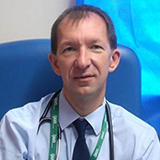There have been numerous descriptions of the winter of 2017/18 in both the medical and national press. It was acknowledged by all that it was probably the worst in terms of performance since the NHS started collecting statistics. Looking back to 2017/18, the target areas were ensuring that there was capacity in the system by reducing delayed transfers of care, implementing primary care streaming, using urgent care centres, redesigning the ambulance response programme, and implementing a flu vaccination programme. [1]
Seven months later and the verdicts were in on the season. The official NHS review published in September showed that the “winter was very challenging” with over 290,000 extra emergency department attendances and over 100,000 extra acute admissions to hospital with the “worst” influenza outbreak since 2010/11. [2] This paper noted that 50% of 111 calls were now answered by an undefined clinician (said to be a positive) and that the new National Emergency Pressure Panel (NEPP) caused the “best ever engagement of professional bodies”—which was not hard given that nothing existed before this. The delayed transfers of care data showed an initial improvement in the July-December time frame, but was increased again by the end of January, showing an overall increase in beds in use up 2.6% in the month. Service performance was poorer than ever before with only 85% of emergency department attenders getting discharged or admitted to a bed within four hours of arrival.
Prior to this report, the Nuffield Trust had released its own view of the issues in May which highlighted the planned cancellation of planned procedures in January as a measure to free up capacity. It concluded that “it seems that the NHS experienced extreme and possibly unprecedented demand and patients waited longer for treatment this winter, with no signs of this abating. But without the steps taken to free up beds and staff, this winter could have been even worse.” [3]
In preparation for this winter the NHS released a letter on 7 September outlining the areas that need prioritising in terms of preparation. This included ambitions for “near universal uptake from their front line staff of this year’s flu jab,” which “will be offered free to social care workers,” 9 million additional GP appointments, and using community providers to free up capacity. Trusts were also “reminded” of the national ambition, to free up 4,000 beds by the end of December 2018. This latter number matches the number of extra beds required in the previous year.
The NHS continued to struggle through the long hot summer with regular performance bulletins showing data were worse than comparable months in the years before, with only a slight upturn in the week before Christmas.
And now that we are in the middle of winter, how are things so far?
Figures from just before the holiday season showed that with reference to the flu vaccination programme only 61% of healthcare staff had been vaccinated, an increase of only 1.7% on the year before, despite the massive efforts to increase uptake. The uptake in at risk groups, especially those aged less than 65 was poor, with only 44.7% uptake in that group, and only 43.6% of pregnant women vaccinated. By the end of the year the figures showed a “moderate” impact on hospitalisation and intensive care unit admission, but the feeling is that since this time there has been a large increase in Influenza A related illnesses and data is awaited.
With regards to activity the elements have been much kinder than anyone could hope with no severe weather so far this season, but a chillier spell of weather will prove problematic with the services on a knife edge with high bed occupancy just before the holiday season and then effectively seven of eleven consecutive days where the NHS ran on a “weekend” footing and many social care organisations were on minimum staffing levels. On 30 December there were over 140,000 patients in a hospital bed who had been there >21 days, around 2000 less than the previous year and only half of the target.
The rise in flu, the reduced services causing delays in discharge, and the constant delayed transfer of care patients continues to stress the system and we are beginning to get anecdotal reports of severe strain in numerous trusts, with patients waiting in emergency departments, corridors, and ambulances for treatment with lots of extra beds now open. The next winter situational report has just come out and focuses on the time period to 3 January so we will have to wait another week for the full picture on how things are in the NHS in early January. Finally there are no published minutes of any NEPP meeting since 22 November where it is notable that neither RCEM nor Medical Royal Colleges were represented.
My sincere hope is that the mild weather so far has not lulled our leaders into a false sense of security and that just because things are better than 12 months ago it does not make it good especially as key targets in preparing for winter (i.e. Flu vaccines and DTOCS) were not achieved.
 Nick Scriven is a consultant physician and President Society for Acute Medicine.
Nick Scriven is a consultant physician and President Society for Acute Medicine.
Competing interests: None declared.
References:
- NHS Improvement Letter regarding winter plan 2017/18 – 14/7/2017
- NHS Improvement ‘NHS Review of winter 2017/18 – Sept 2018
- Nuffield Trust ‘Winter 2017/18: the worst ever for the NHS?’ L Merry, E Fisher 24/05/2018
